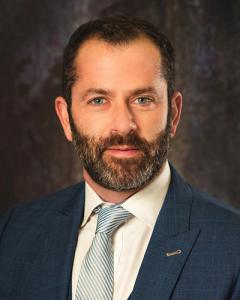Age Tech, Elder Law & Ethics: 5 Key Issues
As long-term care embraces Age Tech, designed to solve elder-specific issues like loneliness, emergencies, exercise, reminders & more, it must be done ethically
ON AGE TECH, ELDER LAW & ETHICS - 5 KEY ISSUES
At its genesis, elder law focused primarily on the estate planning needs of seniors, such as financial concerns about paying for care, and handling their legal affairs after death. Over the last decade or so, "elder law" has evolved to "elder care law", which prioritizes quality of life while the person is still living. Elder care law, in addition to providing traditional financial and legal counsel, also facilitates quality of life and long term support by becoming involved in personal care standards, relationships with providers, the securing of residential placement and more.
According to Bryan J. Adler, Esq., a Board Certified Elder Law Attorney and shareholder at Rothkoff Law Group, an elder care law firm, "As elder care emerges from the pandemic and copes with such factors as inflation and personnel shortages; Age Tech, in the form of robotics, communication systems, sensors, artificial intelligence and more can provide solutions to maintaining and improving quality of life standards in both in long-term care facilities and in age-in-place situations."
As the long-term care industry embraces Age Tech, which includes technology designed to solve elder-specific issues like loneliness, emergencies, exercise, reminders and more, Adler cautions about its ethical use. Adler notes that Age Tech is not a replacement for person-to-person interaction and relationships. Rather, it's a supplement to allow human caregivers to devote more time to interpersonal connections with their patients, while the technology addresses the more routine aspects of elder and personal care. Meaningful interactions lead to better health outcomes. "Care must be taken that one doesn't tread on ethical issues when it comes to elder care - and especially when it comes to those suffering from dementia and other debilitating maladies," said Adler. He has identified 5 key areas where Age Tech devices and technology could run afoul of rules, regulations and rights:
1) HIPAA Laws & Rules
HIPAA (Health Insurance Portability and Accountability Act of 1996) created national standards to protect sensitive patient health information from being disclosed without the patient’s consent or knowledge. Especially relevant in the use of Age Tech are the HIPAA Privacy and Security Rules.
2) Internet privacy laws
Online privacy is protected through a combination of constitutional guarantees, federal and state statutes, regulations and voluntary codes of conduct, both federal and state.
3) Attorney-client privilege
A legal privilege that works to keep confidential communications between an attorney and their client private. However communication made to and by a lawyer in the presence of a third party, like a care giver, may not be entitled to this privilege on grounds that they are not confidential.
4) Power of attorney
How would a robot performing an action for an infirm senior be appropriate if that person had previously given power of attorney to a human relative to do similar tasks? Is an AI robot an entity or a tool?
5) Federal & state wiretapping and electronic surveillance statutes.
For example, if the senior doesn't know they're on camera, it may violate related laws.
Adler provides one example of putting a TV camera in a parent's memory care facility to keep a watchful eye on his or her care, where footage is kept on a hard drive forever until it is erased. He asks, "While this is often permissible, depending on state and local laws, it presents a larger question, not just for the caregiver, but for the patient. Would mom or dad or husband or wife, suffering with dementia, object to a camera in their personal space if they knew and understood its purpose?"
Adler said, "Age Tech has potential to transform elder care in the future by solving a number of quality-of-life issues, reducing costs and increasing accessibility. However, when using Age Tech, remember that the elderly have the same rights everyone else does, and that a loss of cognitive capacity does not mean a total abdication of those rights."
---------
About Bryan Adler, Esq. and Rothkoff Elder Law
Bryan Adler, Esq. is a partner of Rothkoff Law Group. He is also a Certified Elder Law Attorney (CELA) through the National Elder Law Foundation, is Pennsylvania and New Jersey Supreme Courts authorized and has an accredited certification in Elder Law from the American Bar Association.
He serves on various programming and publication committees for the National Academy of Elder Law Attorneys and National Elder Law Foundation. Licensed to practice law in both Pennsylvania and New Jersey, Adler is also a Veterans Administration accredited attorney.
Adler received his Bachelor Degree in Health Policy and Administration from Penn State University and his Juris Doctor from Drexel University.
The Rothkoff Law Group one of the. preeminent elder care law firms in the
United States specializing in protecting the assets and coordinating
long-term care for seniors, individuals with disabilities, and their families.
Email: info@rothkofflaw.com
Phone: 877-475-1101
Website: rothkofflaw.com
Linkedln: /company/rothkofflawgroup Twitter: @rothkofflaw @bryanadler8
###
Leo Levinson
Group Levinson Public Relations
+1 215-545-4600
leo@grouplevinson.com
Legal Disclaimer:
EIN Presswire provides this news content "as is" without warranty of any kind. We do not accept any responsibility or liability for the accuracy, content, images, videos, licenses, completeness, legality, or reliability of the information contained in this article. If you have any complaints or copyright issues related to this article, kindly contact the author above.

